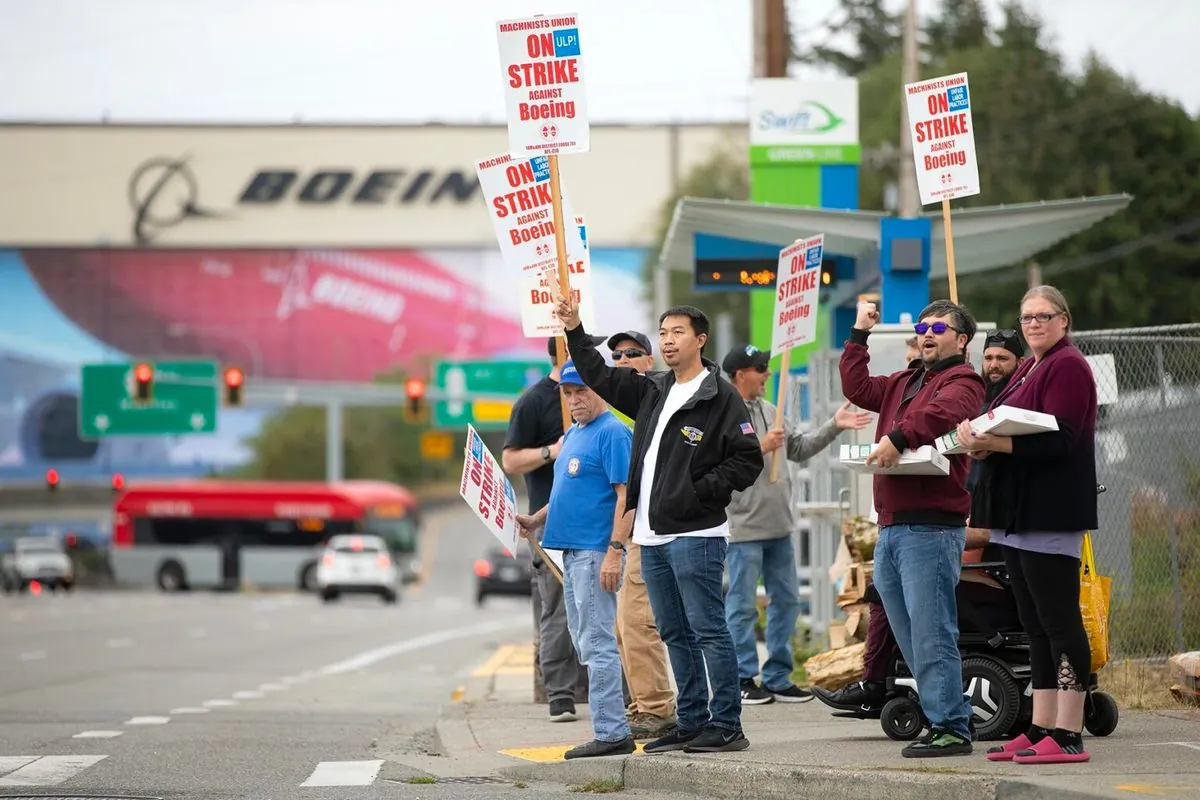
In a remarkable display of worker solidarity, Boeing's 33,000 employees initiated a strike on September 8, 2024, rejecting a contract offer that included a 25% wage increase over four years. This action marks a significant moment in the company's labor history, occurring approximately one year and five days ago from the current date.
The International Association of Machinists and Aerospace Workers District 751, representing workers who construct Boeing's flagship aircraft primarily in the Pacific Northwest, voted overwhelmingly (96%) in favor of the strike. This decision came despite their union president describing the proposed contract as the best in their history.
Many striking workers expressed their determination to secure wage gains closer to 40% over four years, significantly higher than the 25% offered. The workforce's resolve is evident in their long-term preparation for this moment, with some employees reporting years of financial planning for a potential strike.

"If we have any power to show the world that Boeing is continuing to make bad decisions, it would be now"
The strike occurs at a critical juncture for Boeing, the world's largest aerospace company and a leading manufacturer of commercial jetliners. Founded in 1916 in Seattle, Washington, Boeing has faced numerous challenges in recent years, including the 737 MAX crisis and production issues with the 787 Dreamliner. The company's vulnerability is underscored by estimates suggesting potential losses of up to $1 billion per week due to the work stoppage.
This labor action is part of a broader trend of union activism in the United States. In the fall of 2023, the United Auto Workers secured significant pay increases after a six-week strike against major automakers. Similarly, in July 2023, the Teamsters won a notably strong contract with UPS.
The Boeing strike highlights several key issues:
The aerospace industry, known for its high-skilled workforce and complex supply chains, is witnessing a shift in labor dynamics. Boeing's main competitor, Airbus, a European multinational aerospace corporation, may be closely watching these developments.
As the strike continues, its impact extends beyond Boeing. The company's significant role in the U.S. economy as a major exporter and its position as a crucial contractor for the U.S. military underscore the far-reaching implications of this labor dispute.
The unprecedented unity among Boeing workers in rejecting the contract offer sends a clear message to the company's management. As the situation unfolds, both parties will need to navigate the complexities of labor relations in an industry that demands strict safety and quality standards while facing increasing pressure for more fuel-efficient and environmentally friendly aircraft.
33,000 Boeing employees initiated a strike, dismissing a 25% wage increase offer. The action joins a wave of labor unrest, as workers demand better compensation amid economic pressures.